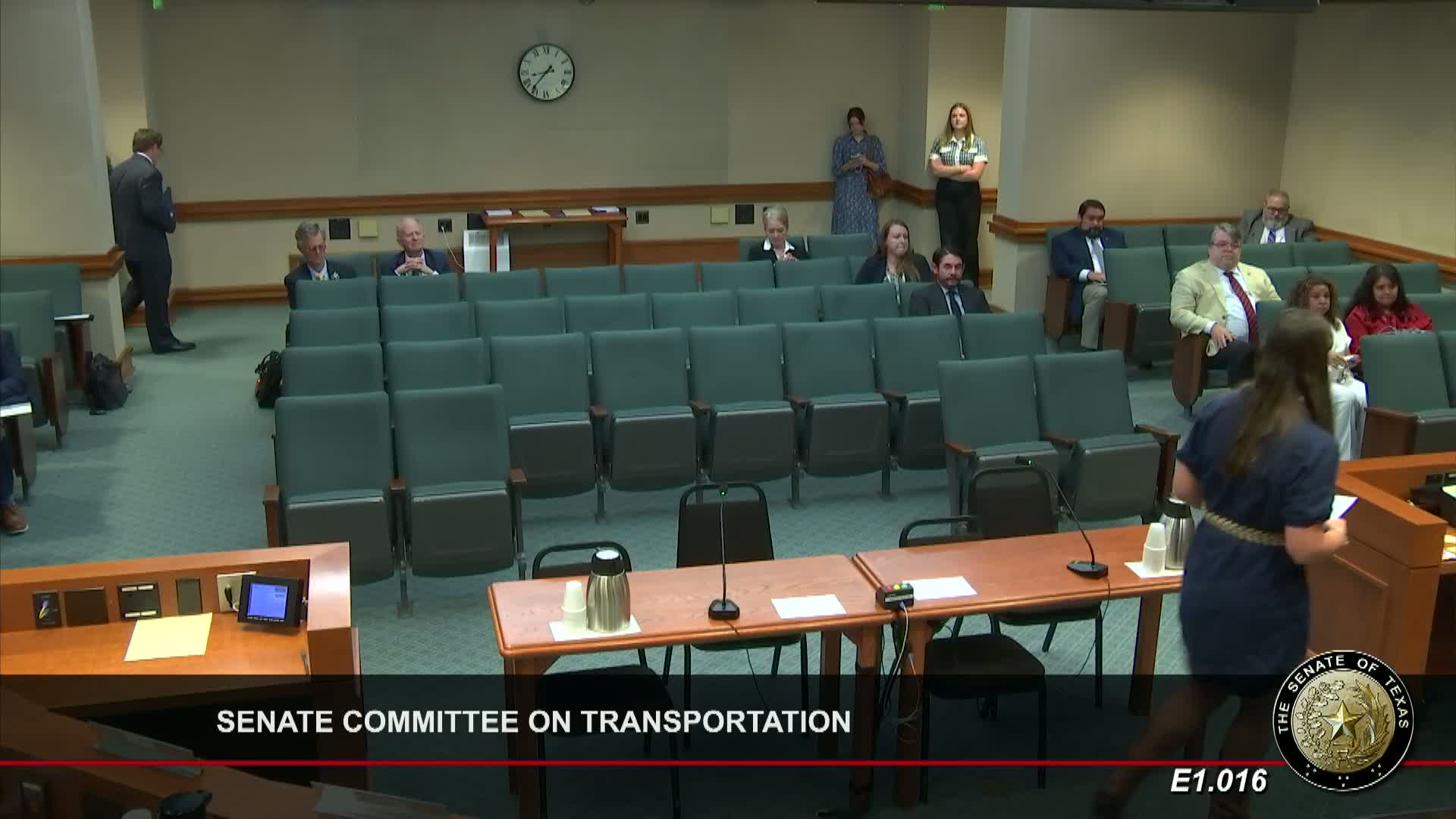Article not found
This article is no longer available. But don't worry—we've gathered other articles that discuss the same topic.
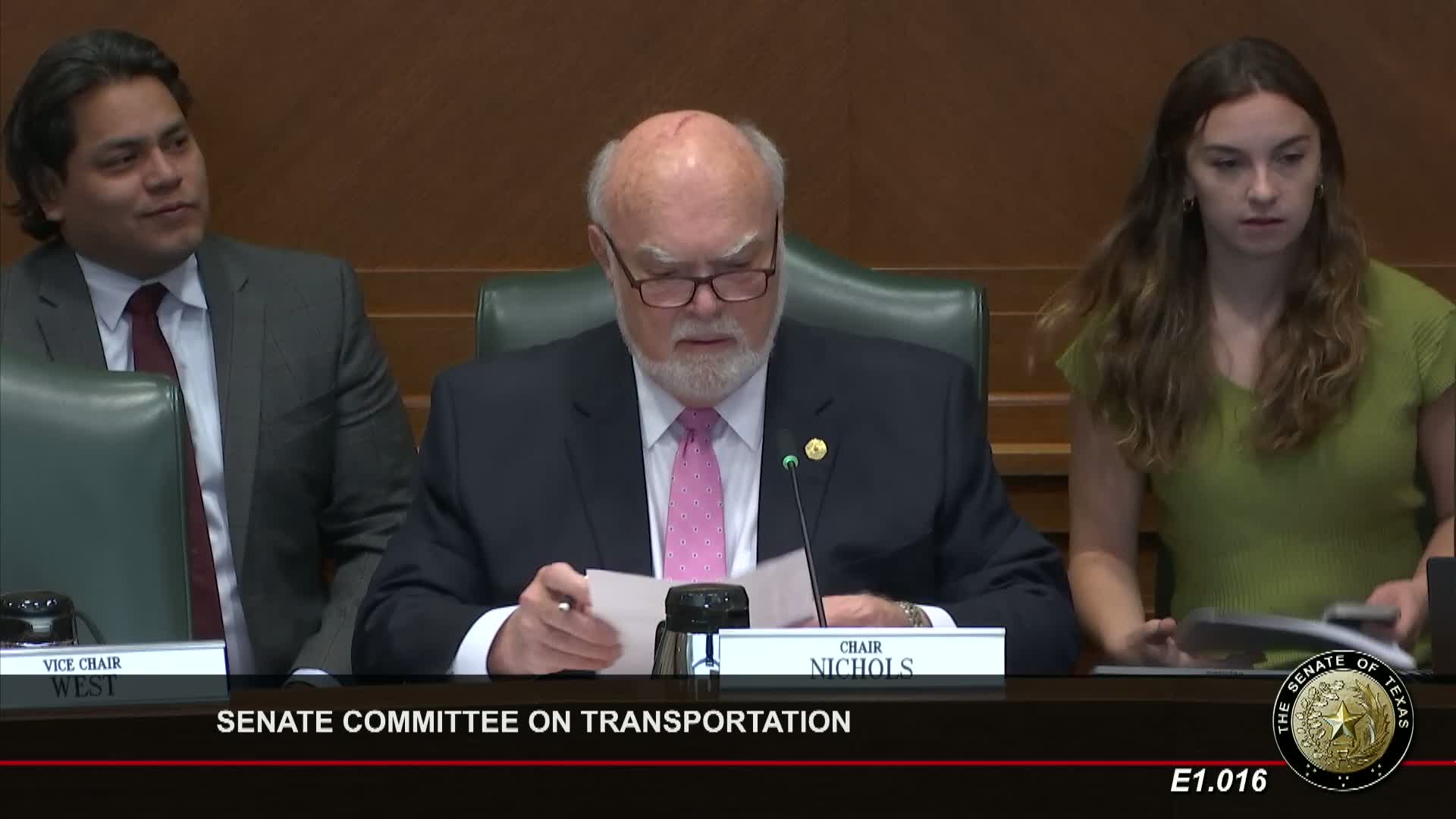
Senate committee reports bill requiring annual disclosures from private high‑speed rail proposers
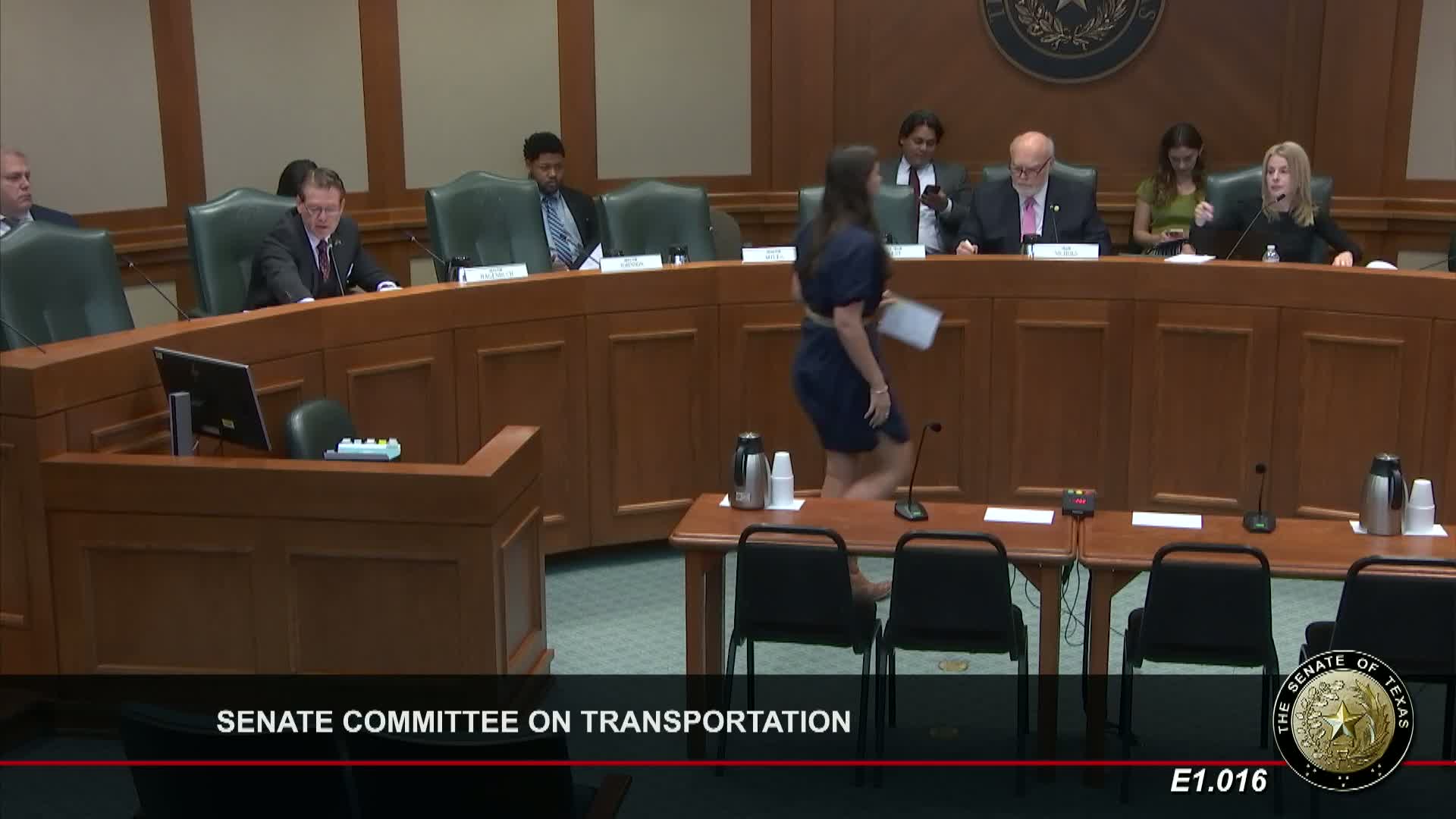
Committee clears bill that clarifies travel‑trailer inspection language; bill does not reinstate inspections
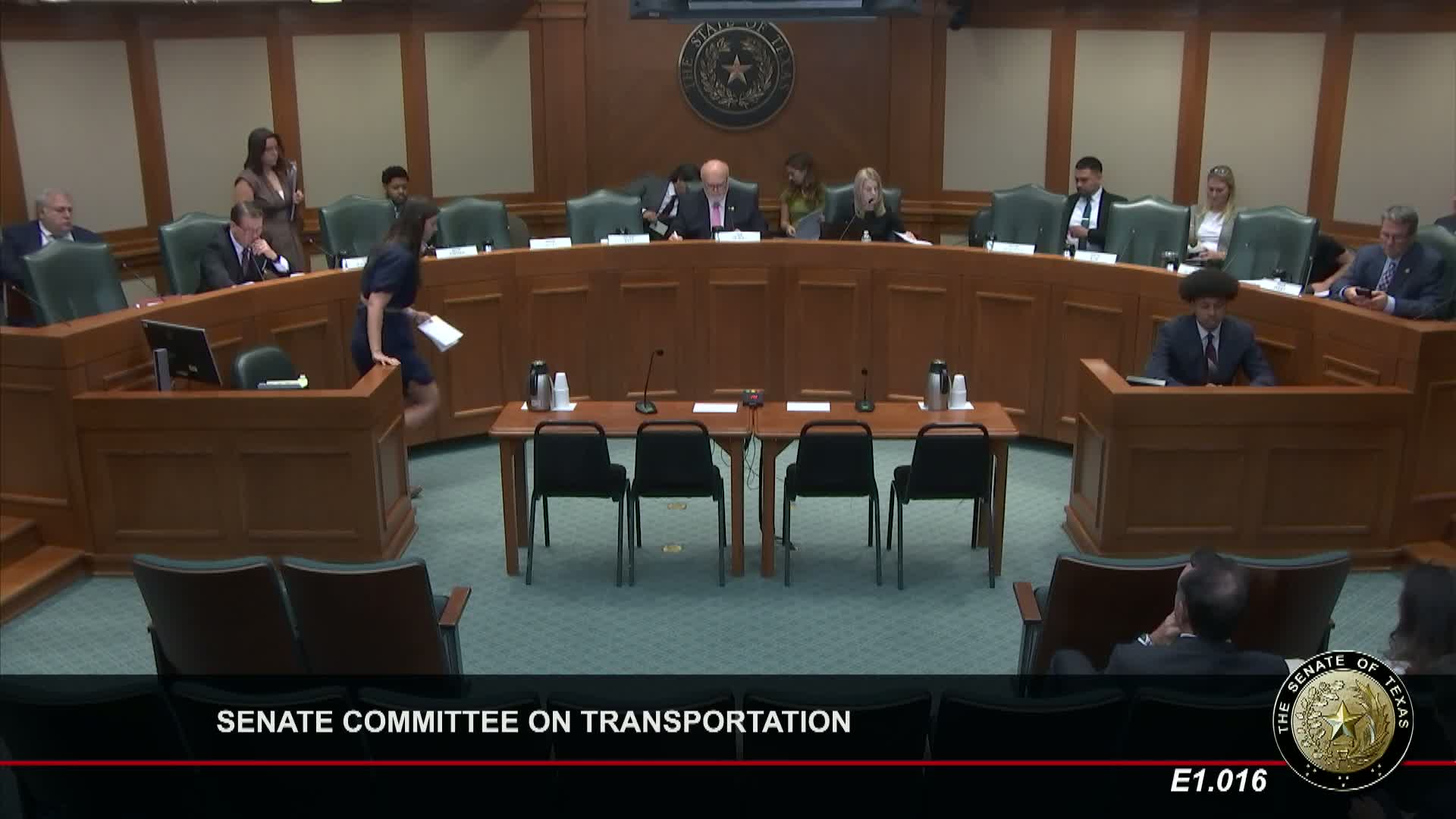
Committee advances bill allowing updated driver licenses after corrective eye surgery without in‑person visit
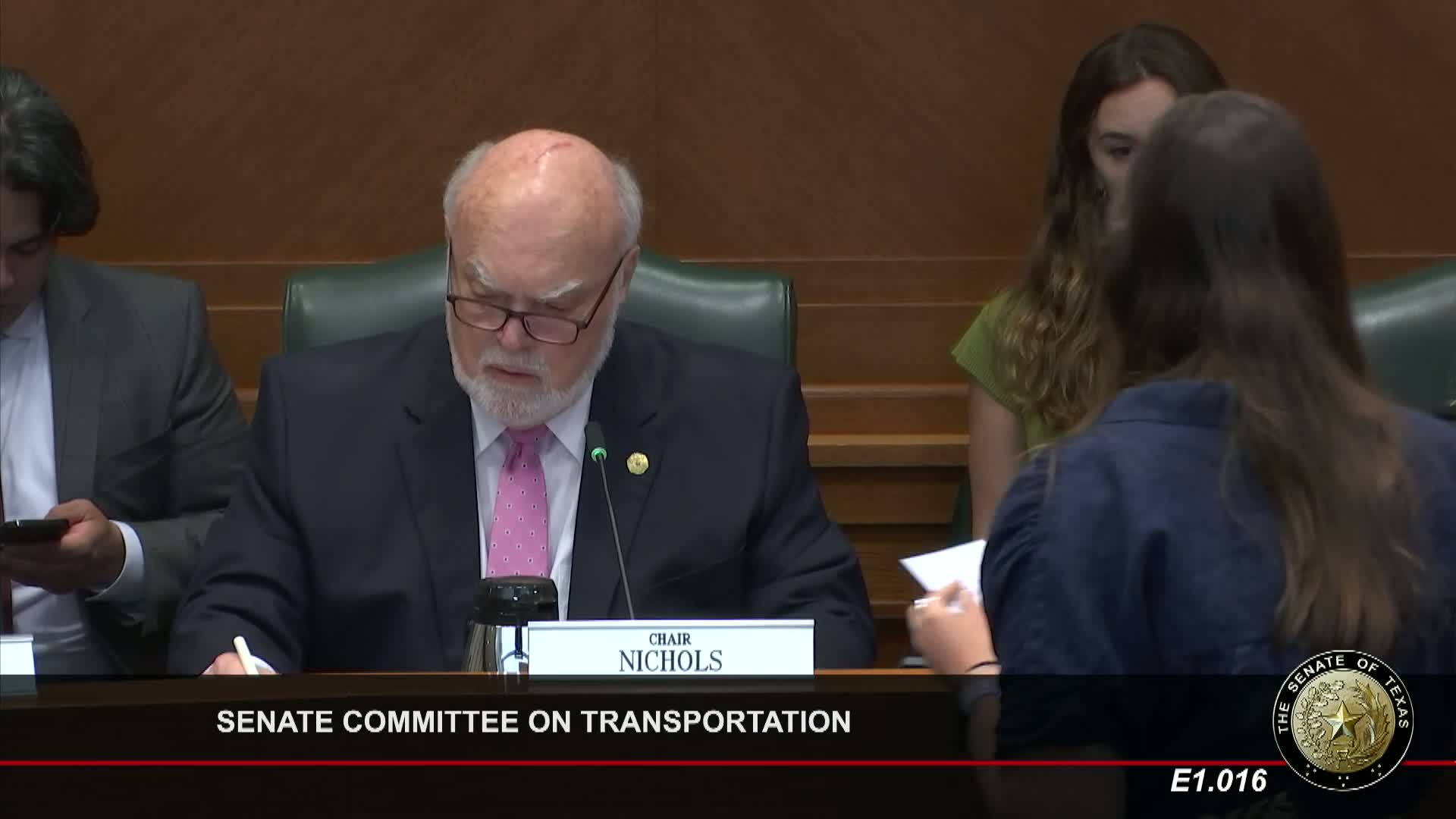
Committee advances bill to remove certain CDL administrative hearings to meet federal standards
